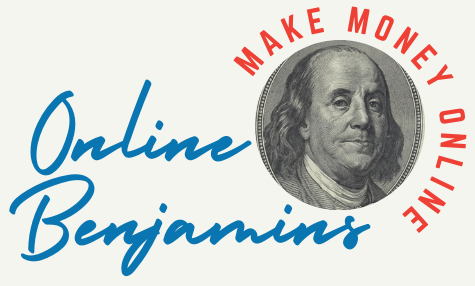Choosing the right online business model is crucial, particularly for beginners and or for those of us with limited funds. I know because I’ve been there. There are so many options and so many ads with “Gurus” hawking their latest and greatest online business course.
How do you sort through the BS, or worse the SCAMS, to find what are real and legitimate online business opportunities? I mean there’s everything from ecommerce, dropshipping, affiliate marketing, freelancing, YouTube, and on and on.
QUICK LOOK: Best Online Business Ideas for Beginners
- E-Commerce: More specifically, dropshipping. Low cost to get started, and easily scaleable.
- Content Creation: Blogging, YouTube, Social Media. Very little captial required to start and has multiple monetization opportunites.
- Freelancing: Offer you services and skills online through marketplaces such as ffiver, Upwork, github, and more.
- Digital Products: Turn you passion and expertise into digital courses and products. Very low overhead and huge upside potential.
I’ve reviewed hundreds of these so-called opportunities and wasted a lot of money on some. Follow along and We’ll look at some of the best legitimate opportunities for beginners to start an online business.
Learn from my mistakes, and my successes, so you can avoid the mistakes and get started creating your own successful online business. I’ll even hook you up with a no-cost, no-obligation trial of the platform I use to build my online businesses so you can see if it would be a good fit for you and your business needs and goals.
Best Online Business Ideas for Beginners
When choosing the best online business ideas for you, It’s not just about picking the most popular one; it’s about finding the model that aligns with your skills, interests, time constraints, and budget. Also, when evaluating business models, market demand is a key factor. It’s simple: no demand, no business.

So, how do you gauge demand? Start by researching trends, reading consumer feedback online, and even conducting surveys. Scalability is also vital. Can your business grow without being hampered by increased costs or logistical nightmares? Let’s look at real-world examples. An online course creator saw a gap in advanced Photoshop tutorials and filled it.
A tech enthusiast started reviewing gadgets on their blog and now earns through affiliate links. These people identified a need and built their business around it, proving that when you combine passion with market research, the outcome can be incredibly successful. The following are my top 4 beginner-friendly online business opportunities and the pros and cons of each.
E-Commerce Starting with Dropshipping
One of the most accessible online business models for beginners: dropshipping. This model’s beauty lies in its simplicity and potential for growth, making it a perfect starting point.
Dropshipping is a streamlined e-commerce method where you sell products without holding inventory. Your supplier handles storage, packaging, and shipping directly to your customers. This approach reduces the financial barrier to entry for new entrepreneurs.
To find your niche, conduct thorough market research. Look at trends, but don’t forget to analyze competition and demand. Zero in on products that you understand and for which there is a verifiable audience.
Setting up your first dropshipping store is about smart and efficient choices. Platforms like Shopify or WooCommerce provide tools that integrate your storefront with a plethora of suppliers, simplifying the startup process.
As you familiarize yourself with these tools, your focus will be on beautiful, functional web design and customer service—all meant to provide a seamless shopping experience. Dropshipping is a clever business model that simplifies the retail value chain for entrepreneurs. Here are the key pros and cons:

| E- Commerce Dropshipping Pros |
|---|
| No inventory management: You don’t need to handle products directly or maintain warehouses. |
| Minimal overhead costs: Lower initial investment compared to traditional retail. |
| Increased product variety: Access a wide range of products without stocking inventory. |
| Low risk: Less financial risk since you’re not holding inventory. |
| E-Commerce Dropshipping Cons |
|---|
| No control over fulfillment: You rely on third-party suppliers for shipping and order processing. |
| Vulnerability to stock crisis: If your supplier faces shortages, it can impact your business. |
Remember, while dropshipping has advantages, success requires effort, patience, and strategic planning.
Monetizing Your Passion Through Content Creation
If you’re passionate about a topic and enjoy sharing your knowledge, content creation can be a lucrative pathway. This isn’t just about writing articles; it’s also about videos, podcasts, online courses, and more.
The first step is to identify a content niche that aligns with your interests and has a dedicated audience. You’ll want to research trends and look for gaps in the market that you can fill with your unique perspective.
Once you’ve honed in on your niche, the next task is to build an audience. This involves creating high-quality, relevant, and engaging content regularly. You can leverage various platforms like a personal blog, YouTube, or a podcast to reach potential followers.
Remember, growing an audience takes time, patience, and consistency, but the payoff of a loyal following is twofold: the satisfaction of impact and the potential for monetization. Now, when it comes to monetizing your content, there are several options available: advertising revenue, sponsored content, affiliate marketing, memberships, and selling products or services.
Whichever route you choose, it’s essential to maintain the trust of your audience by ensuring that any monetization strategy aligns with your content and provides value. Engaging with your audience isn’t the end; it’s an opportunity to gain insights into their needs and preferences.
Use this feedback to continually refine your content and explore new ideas. This approach not only keeps your audience engaged but also attracts new followers, growing your content platform and broadening your monetization opportunities.
Transitioning from content creation to freelancing can be seamless, especially when you’ve established a strong portfolio and a personal brand. In the next section, we’ll explore how to turn your skills and passions into a profitable freelancing career, expanding on the audience and reputation you’ve already built through content creation so you can generate income from multiple sources.
Starting a content creation business can be an exciting journey, but it’s essential to weigh the pros and cons. Here’s a breakdown:
| Pros of Content Creation for Beginners |
|---|
| Self-expression: Content creation allows you to share your unique ideas, talents, and perspectives with a global audience. |
| Creativity: Unleash your creativity through videos, blogs, podcasts, or social media posts. |
| Industry credibility: Consistent content builds credibility and expertise in your niche. |
| Global reach: Reach millions of people online and spark conversations. |
| Low entry barrier: It’s accessible, especially in this digital era. |
| Cons of Content Creation for Beginners |
|---|
| Time commitment: Creating quality content takes time and effort. |
| Monetization challenges: It may take a while to generate income. |
| Audience building: Building a loyal following requires consistent engagement. |
| Competition: The content landscape is crowded. |
| Adaptability: Staying relevant means keeping up with trends and technology. |
Remember, dedication, authenticity, and adaptability are key to success in content creation!
Turning Skills into Income with Freelancing
I’m not just saying this: freelancing is a game changer. Why? Because it turns your existing talents into a revenue stream. Think about what you’re good at. Writing? Graphic design? Programming? These are all skills that businesses are looking to hire for on a project-to-project basis.
You might wonder about the stability of freelancing compared to traditional jobs. I get that. Freelancing does come with the challenge of finding your own clients, but it also offers flexibility. You set your own hours, choose your clients, and decide your rates.
Creating a powerful online presence is key. Update your LinkedIn profile, start a professional website, and maybe even put some of your work on places like Dribbble, fiverr, upwork, or GitHub, depending on your field. This isn’t just about showing off your work; it’s about demonstrating your value to potential clients.
Speaking of clients, let’s get into how to find them. Start with your network—people you’ve previously worked with or studied with. These connections are powerful. They already know you and your work ethic. Next, platforms like Upwork and Freelancer can help you find clients, but remember, it’s competitive out there.
Finally, don’t forget to handle your clients well. Clear communication and meeting deadlines go a long way. Ask for testimonials and referrals to build credibility. When you do a great job, clients come back, and they bring friends.
Leveraging your freelance work can evolve beyond service-based engagements. Think bigger—like creating digital products based on what you’re already doing and selling them. Freelancing can be an exciting career choice, especially for beginners. Let’s explore the pros and cons:

| The Pros of Freelancing for Beginners |
|---|
| Flexibility: Set your own work hours and location. |
| Independence: Be your own boss and choose your projects. |
| Varied Work: Engage in diverse projects across different fields. |
| Skill Showcase: Demonstrate expertise and build a portfolio. |
| Potential Earnings: Freelancers can earn well. |
| The Cons of Freelancing for Beginners |
|---|
| Uncertain Income: Irregular pay and lack of stability. |
| Self-Management: Handle marketing, client acquisition, and finances. |
| Isolation: Work alone without office camaraderie. |
| Client Challenges: Dealing with difficult clients. |
| Healthcare and Benefits: No employer-provided benefits. |
Remember, freelancing requires discipline, adaptability, and networking!
Digital Products Business Selling Your Knowledge and Expertise
You’ve probably explored the terrain of digital products, a frontier rich with potential. Online courses, tutorials, How-to’s, and many more. It’s important to identify which types of digital products align best with your knowledge and interests. From eBooks and courses to software and templates, the choices are plentiful.
Marketing, a critical influencer of success, can’t be a second thought. The power of understanding your customer and crafting messages that speak directly to their desires and needs is important for your success. Effective use of social media, email marketing, and strategic partnerships can drastically improve your reach.
Remember, the journey of creating and selling digital products is ever-evolving. Your initial offerings will provide insights that are just as valuable as revenue. Customer feedback fuels improvement, leading to more refined products and increased satisfaction on both ends. Above all, success with digital products requires persistence and adaptability.
Digital landscapes shift rapidly, but staying attuned to changes and embracing continuous learning will pave the path to profitability. I’m excited about the opportunities that lie ahead for you. Now, take what you’ve learned and start building—your next profitable online business awaits. Starting a digital products business offers exciting opportunities. Let’s explore the pros and cons:
| Pros of a Digital Products Business for Beginners |
|---|
| Flexibility: Work at your own pace and manage all aspects of the business. |
| Home-based: No need for physical storefronts or office spaces initially. |
| Low startup costs: Digital products require less investment. |
| Rewarding work: Solve customer problems and work on what you care about. |
| Scalability: Adapt to changing demands and reach diverse customers. |
| High margins: Gross margins around 40% allow for growth. |
| Unlimited income potential: No income cap. |
| Cons of a Digital Products Business for Beginners |
|---|
| Irregular income: Lack of stability. |
| Self-management: Handle marketing, client acquisition, and finances. |
| Isolation: Work alone without office camaraderie. |
| Client challenges: Dealing with difficult clients. |
| Healthcare and benefits: No employer-provided benefits. |
Remember, dedication and adaptability are key to success in the digital products world!
My #1 Recommendation for Beginners is Affiliate Marketing through Content Creation
Entering affiliate marketing can feel like navigating a maze with no clear start or direction. Essentially, affiliate marketing is promoting others’ products and earning a commission on sales through your affiliate links. It’s straightforward in theory, yet the execution demands strategy, understanding, and ongoing learning.
Choosing the right educational starting point is crucial. A Legitimate affiliate marketing course should offer clear, step-by-step guidance, practical strategies, and a foundation for understanding the market and your audience. It should be comprehensive yet digestible for someone just stepping into the ring.
Equally important, I want you to be aware of the red flags. Steer clear of courses promising overnight success, get-rich-quick, easy money, or using pressure tactics like multiple upsells. Legit quality courses won’t need gimmicks—they provide value, proven results, and a free trial or money-back guarantee.
I know, because I’ve reviewed hundreds of them, and I am an active member of several. Some courses out there are simply over-hyped and outdated. And, a few are just plain trash. I’ve wasted more money than I care to admit on what turned out to be BS.
There’s one that really stands out above all the rest for beginners, and that’s Wealthy Affiliate. It’s the platform I use to build my online and affiliate marketing businesses and I have been a member for over 5 years. It is by far the best overall affiliate marketing course in the industry.
And, the cool thing is, you don’t have to take my word for it. They let you try it before you buy it with a 100% free no-obligation trial of the platform. That way you can check it out for yourself and see if it is a good fit for you and your business needs and goals. Just click the button below to get started with your free trial of Wealthy Affiliate.
I’m Looking forward to working with you,
Rex
More Articles on Online Business Ideas
- Facebook Ads Strategy For Dropshipping

- Leveraging AI For Effective Inventory Management

- Best AI Video Generators For TikTok And Youtube

- How To Build A Branded Dropshipping Business

- Best AI Tools For Creating Downloadable Images

- How To Create Viral Faceless Content For Tiktok

P.S. Again, Wealthy Affiliate is COMPLETELY FREE to get started. No catch, no obligation, and no bait and switch. I will personally be in touch with you upon joining to offer my support and guidance to help you get up and running online.
P.P.S. If you have any questions or are unsure of anything, I am here and I promise I will get back to you on all of your questions and comments. Just leave them below in the comment section. Follow me on Twitter: @onlinebenjamin1, Instagram: dotcomdinero, and Facebook: Online Benjamins
- onlinebenjamins.com
- thebeachangler.com
- thesinnerinthemirror.com
- my.wealthyaffiliate.com/rex10
- Facebook: Online Benjamins
- Twitter: @onlinebenjamin1
- Instagram: dotcomdinero
Hi,
Thanks for stopping by and congratulations for taking the first steps to building your own online business. I’ve been in business both offline and online since 1997. I would consider it an honor to help you build your business. Father of 3, life long outdoorsman with an education in Genetics and Economics. This site is about cutting through the BS and finding the real opportunities in the online world. I look forward to working with you.




